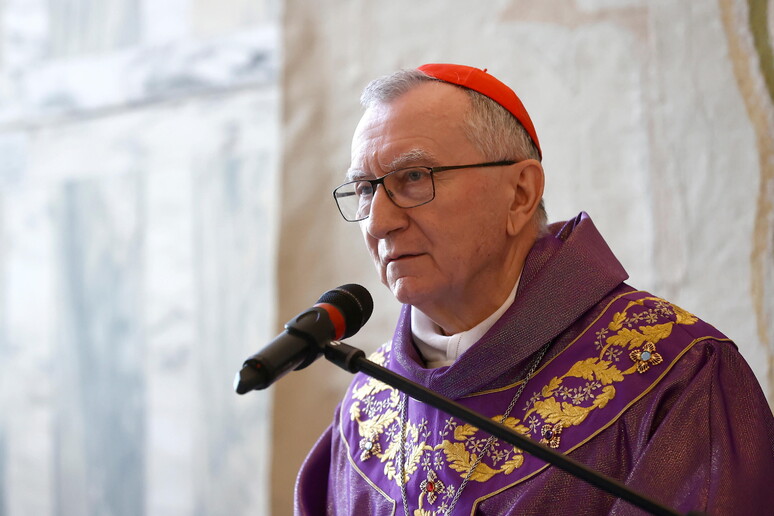The names of the 'papabili', or
likely papal candidates, have been circulating in the media for
some time amid Pope Francis's last illness and amid a geography
of the conclave of cardinal electors that he radically changed
during his 12-year pontificate, opening it up to newer and
faster-growing zones of Catholic worship.
The top papabili at the moment reportedly include: Vatican
Secretary of State Pietro Parolin, Archbishop of Bologna and
Italian bishops conference (CEI) president Matteo Zuppi (also
Ukraine envoy), the Patriarch of Jerusalem Pierbattista
Pizzaballa, Hungarian Peter Erdo, France's Jean-Marc Aveline ,
Dutchman Willem J. Eijk, Filipino Luis Tagle to represent the
rising Asian Church, the Congolese Fridolin Ambongo Besungu to
embody the booming African reality, and Brazilian Leonardo
Ulrich Steiner, Archbishop of Manaus, for the equally increasing
Latin American zone of interest, which boasted its first pontiff
in the Argentine Francis.
Some 135 cardinals will take part in the conclave, of whom 108
were named by Francis, 22 by his German predecessor Benedict XVI
and five by the previous Polish pope John Paul II.
One of those named by Francis was one of his fiercest critics,
Germany's Gerhard Ludwig Mueller. Other opponents of Francis's
more liberal attitudes include several African bishops where
even talking about homosexuality is taboo, and a swathe of
conservative American cardinals.
The college of cardinals under Francis became ever less
Eurocentruic, ever less Italian and Western led, showing a more
generous gaze on the peripheral realities of the Church, the
'frontier churches' across the globe.
Some 59 cardinals will come from Europe (19 from Italy), 37 from
the Americas (16 from North America, four from Central America,
17 from South America), 20 cardinals from Asia, 16 from Africa,
and three from Oceania.
The issues facing the vote in the conclave, Church watchers say,
are representative of a Church less entrenched in the defence of
old privileges and vested interests, more open to healing the
wounds of humanity in all corners of the globe, to the defense
of Creation, to poverty and inequality in all their dimensions,
to the peripheries, as Francis defined them, "both physical and
existential".
A huge question mark, not only in relation to the armed
conflicts that are bloodying the planet today, with the "third
world war fought piecemeal" also coined by Pope Francis, is the
relationship with politics, in a world that from this point of
view is experiencing a phase of rapid change and evolution. The
youngest member of the conclave will be the Ukrainian Mykola
Byčok, who turned 45 on February 13.
The oldest is the Spaniard Carlos Osoro Sierra, who turns 80 on
May 16 and may thus be disqualified from voting if the rites
drag on, followed by only a month by the Guinean Robert Sarah.
photo: Zuppi
ALL RIGHTS RESERVED © Copyright ANSA











